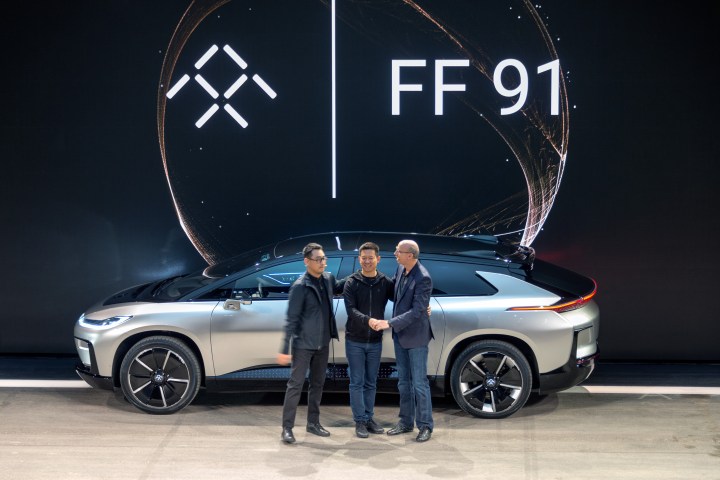
Krause joins a clown car’s worth of top executives who have either fled or been fired from the company, which has very publicly struggled with funding challenges and production problems this year. Pontus Fontaeus, director of interior design and brand, quit in early October, and Tom Wessner, head of Faraday’s supply chain management, reportedly left as well, as did new CTO Ulrich Kranz, The Verge reported Friday, and Bill Strickland, head of manufacturing.
But did they all quit? The answer is far from clear. Faraday Future issued a press release on Friday evening claiming it was immediately terminating both Krause and Kranz and would pursue legal action Krause.
“FF is taking legal actions as a result of Stefan Krause’s malfeasance and dereliction of duty.”
“Stefan Krause’s possible violation of law and lack of contribution to FF’s goals over the course of his leadership since March has led to severe damages to the interests of FF and its investors. FF is currently taking legal actions as a result of Stefan Krause’s malfeasance and dereliction of duty,” the company wrote. “Pascal Coustar will temporarily lead the operations of FF’s financial management.”
As for Kranz, the company said, he’d only been in his role for a few months. No big whoop, apparently.
“Ulrich Kranz has only been appointed in this role for over three months and this termination wouldn’t affect the R&D process and product development of FF.”
The start-up, which is based in California but funded by Chinese entrepreneurs, aimed for the stars and the high profile luxury electric car market, currently dominated by Tesla. The company’s woes have been very public over the last few months: the range of models was trimmed, and plans for a costly production facility in California were announced, abandoned, and rebooted as of August. In general, things all went pretty much sideways — here’s everything you need to know.
But never fear! There are plenty of ambitious electric car companies on the market, should Faraday Future ultimate fail. You can place your bets right now with Lucid Motors, which plans a $60,000 electric car that can go 240 miles between charges. Sure, Lucid needs venture capital funding to survive, but it’ll get there, right? Or you could look to LeEco, the other Chinese company promising an electric car — assuming it can find the funding it needs.
Electric cars hold enormous promise, as evidenced by the glut of companies looking to take over the space. And they may save the world some day. But if you’re going to hold your breath, we suggest waiting for flying cars — they’re just around the corner too!
Editors' Recommendations
- Modern cars take touch controls too far. This company found a balance
- 2022 Chevy Bolt EV and Bolt EUV: More electric cars to love
- Future Hyundai and Kia electric cars will be able to charge each other
- Lucid Motors CEO gives us the details on the 400-mile Air electric car
- Honda will use General Motors technology to build two electric cars


